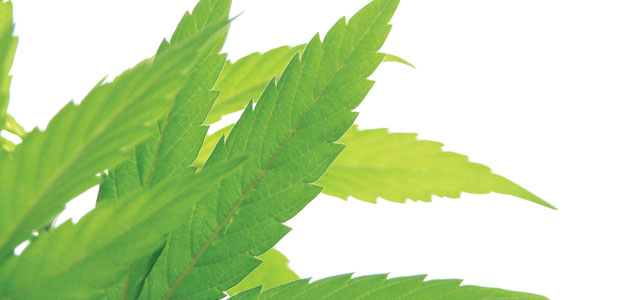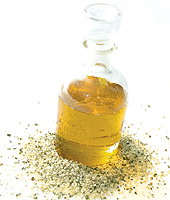Advertisement
Hemp Hoopla
Wouldn’t it be commendable to base our judgments on the object in question rather than on its family members? Let’s take the hemp plant, for example. Over the years, there has been a lot of controversy around hemp due to its relation to marijuana. Both derive from the same plant species, cannabis sativa, which means … Continued


Wouldn’t it be commendable to base our judgments on the object in question rather than on its family members? Let’s take the hemp plant, for example.
Over the years, there has been a lot of controversy around hemp due to its relation to marijuana. Both derive from the same plant species, cannabis sativa, which means “useful hemp.”
Healthy Without the “High”
The main difference: marijuana contains levels of tetrahydrocannabinol (THC), the compound that gives marijuana its psychoactive effect, of between 5 and 20 percent, while hemp contains only trace levels of less than one percent. Hemp is often described as “marijuana’s nonpsychoactive cousin,” and they are indeed as different as relatives can be.
A Potent Seed
Whole hemp seeds are an excellent source of gluten-free protein. Hemp protein contains a well-balanced supply of all the essential amino acids, making the protein easily digestible. It is free of oligosaccharides, which can cause gas and upset stomach.
Hemp seeds are composed of about 12 percent carbohydrates and about 30 percent fibre. In China they are known as colon cleansers and are the most popular remedy for hemorrhoids and constipation. Hemp seeds also contain about 35 percent fat in the form of high-quality oil.
A Perfectly Balanced Oil
Hemp oil contains a ratio of about 3:1 omega-6 to omega-3 fatty acids as well as the metabolite gamma-linolenic acid (GLA), which makes it unique among edible seed oils. This balance of the essential fatty acids (EFAs) in hemp oil has been described as “optimal,” and has given the oil a reputation as the healthiest on the market.
In Fats that Heal, Fats that Kill (alive Books, 1993), Udo Erasmus tells us “hemp seed oil can be used over the long term to maintain a healthy EFA balance without leading to either EFA deficiency or imbalance.”
Dr. B. Marc Alfred, Professor Emeritus at UBC, however, states that there is no population or experimental data to support the basis of this optimality claim. But he concedes that ?it is the case that hemp seed oil does provide both EFAs with about three times as much omega-6 as omega-3. Since there is so much more omega-6 than omega-3 in the body, it seems at least intuitively plausible that the balance is better in hemp seed oil.”
The GLA found in hemp oil helps to form short-term hormone substances that fulfill vital roles in controlling vascular tone and inflammation processes. Additionally, GLA has been found effective for treating rheumatoid arthritis, and the GLA and vitamin D content of hemp foods may make them beneficial in preventing and treating osteoporosis.
Also found in hemp seed oil are vitamin E, carotene, and minerals including calcium, magnesium, sulphur, potassium, and phosphorus. In addition, hemp seed oil is a good source of chlorophyll and cholesterol-reducing phytosterols, both of which act as anticarcinogens.
Hemp as a Food
In our modern Western society, hemp seed oil may seem relatively new; however, in eastern European countries, especially Russia, it is commonly used as an inexpensive substitute for butter. South African babies are weaned on hemp pablum, and in China roasted hemp seeds are a common, healthy snack.
Great in mayonnaise or salad dressings, the flavour of hemp oil is similar to that of sunflower oil. Hemp oil is green in colour because of its content of magnesium-containing chlorophyll. If used for cooking, the oil should not be heated above 350 F (180 C) to avoid turning it into “trans” (unhealthy) fat. Alternatively, cook the food first, and then add the oil for flavour and nutrition.
Hemp Oil for Skin Care
Hemp oil is highly effective in skin care and cosmetic products because it provides EFAs (especially GLA), which are crucial for healthy skin. In fact, evidence has been found that hemp seed oil benefits atopic eczema and psoriasis. A number of skin lotions, lip balms, shampoos, and conditioners contain hemp seed oil.
Check your local health food store for hemp skin care and food products. Overlook the seedier relative and consider the many benefits of the “useful hemp.”




